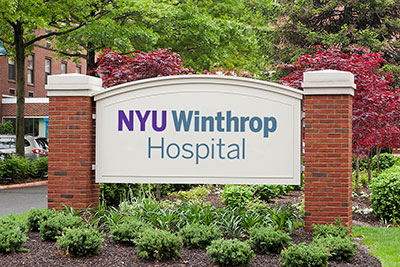The general public can now be trained like first responders.
NYU Winthrop is expanding it’s Stop the Bleed program to teach non-medical professionals protocol to stop critical bleeding.
Stop the Bleed uses the same philosophy behind CPR training, said Dr. D’Andrea Joseph, interim director of trauma, critical care and emergency surgery at Winthrop.
“You see a person who’s bleeding and at risk of dying and you make it almost second nature [to help],” Joseph said.
Stop the Bleed is a national program initiated by the American College of Surgeons and supported by Homeland security. NYU Winthrop is the first organization in Nassau County to bring the classes to the general public, according to a Winthrop press release.
By training the public, the program aims to limit unnecessary casualties of victims of mass shootings and terrorist attacks. The program was developed by Dr. Len Jacobs in response to the shootings at Sandy Hook Elementary School in Connecticut.
Bleeding from serious arm and leg wounds is the most frequent cause of preventable death from extremity injury, said Dr. Fahd Ali, a lead trauma surgeon at Winthrop.
Police often look for the shooters following attacks – and rightfully so– but often overlook or don’t know how to treat bleeding patients that could be saved, Joseph said.
Treating fatal bleeding isn’t as hard as people think, Joseph said.
“It’s very easy, you’d be surprised,” Joseph said. “It’s just a matter of appropriate degree of pressure and tightness and that is something easily taught to the average person.”
Similarly to when learning CPR, Joseph said a person just needs to learn how much pressure to apply and how tightly to wrap a tourniquet.
A trained citizen might not be as precise as a doctor might be, but it’s still better than nothing, according to Joseph.
“Of course you want to do it correctly, but if the difference is life or death it makes that transition easier,” Joseph said.
Joseph also said that treating fatal blood wounds is safe. While there is a risk of exposure, Joseph said the “idea is to protect yourself as best as you can” in order to save a life.
This past summer Winthrop began training local police officers, as well as hospital security guards and parking attendants. The two-hour training session is soon expanding to “train the trainers” sessions, which will allow the trained officials to teach the lessons themselves in the local communities and schools, according to a Winthrop press release.
Joseph said she’s proud of Winthrop for being part of this movement.
“The first step is obviously before the person gets injured,” Joseph said. “But once a person gets injured, [it’s] being part of the community to teach the public how to save lives and make things easier and produce a better outcome for the person that is hurt.”



